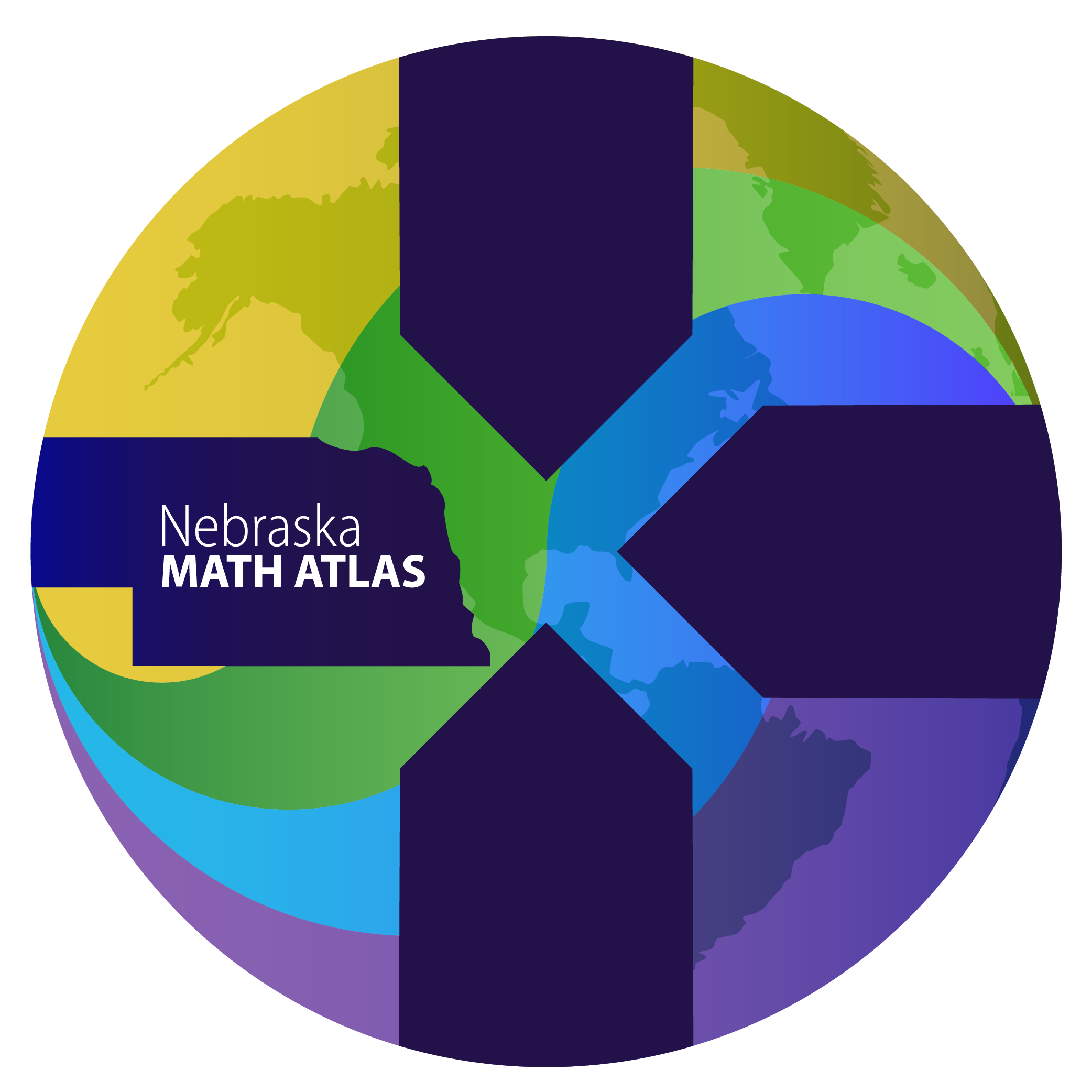
The Nebraska Mathematics Atlas (NE Math Atlas) is an interactive tool from the Nebraska Department of Education that illustrates the coherent structure of the NE 2022 College- and Career-Ready Mathematics Standards. Created by NDE Mathematics Education Specialist Bridgette Stevens with the support of 25 expert classroom teachers, curriculum specialists, and math educators, the tool helps users understand the connections within and across grade-level standards and facilitates examining the mathematics learning progression from birth to high-school advanced topics.
NE Math Atlas users can search the CCR Standards by concept or by grade. To learn more about subitizing, for example, a user could search the standards by concept to see how subitizing develops across kindergarten, first, and first grades. If interested in learning more about a specific standard, click on the appropriate grade level, view the standards by content area, and select the standard.
The NDE hopes the Atlas will serve several groups of mathematics teachers, Stevens said, including novice teachers, teachers in professional learning communities, teachers who work with students in need of additional support, curriculum specialists and instructional coaches, administrators, and educator preparation program providers.
Novice teachers, for example, can use the NE Math Atlas to learn more about connections within grade-level standards and plan grade-level instruction by examining standards from prior and subsequent grades. Teachers in professional learning communities can use it to facilitate discussions within and across grade levels and discuss instructional practices through the lens of the CCR Standards.
"Teachers that work with students in need of additional support can access the progression of standards across grades and make better informed decisions on how and when to intervene," Stevens said. "It can help in prepping for small group activities by revisiting prior learned concepts, so students are prepared for on-grade-level instruction."
Curriculum specialists and instructional coaches, too, can use the Atlas to deepen their knowledge about the standards to inform discussions around curriculum, instruction, and assessment. Administrators can employ the tool to improve efficiency of conversations with teachers and support teachers in planning instruction with the achievement-level descriptors in mind. Lastly, educator preparation programs can use the Atlas to help preservice and in-service math teachers examine the math learning progression as it relates to teaching and learning in Nebraska.
"We hope teachers and curriculum specialists will provide feedback on the interconnectedness of the standards and will share how they use the Atlas," Stevens said. "We are hoping curriculum specialists and instructional coaches will provide feedback on missing linkage between standards and ways to improve the use of the Atlas. We also hope preservice teachers offer insight on how the tool assists in learning to teach mathematics.
"People may offer suggestions for improvement by submitting feedback," Stevens added.
"We would like to expand the current version to include valuable resources that help develop the intent, understanding, and implementation of the NE Mathematics Standards."
Questions and feedback about the NE Math Atlas can be sent to Stevens at bridgette.stevens@nebraska.gov.